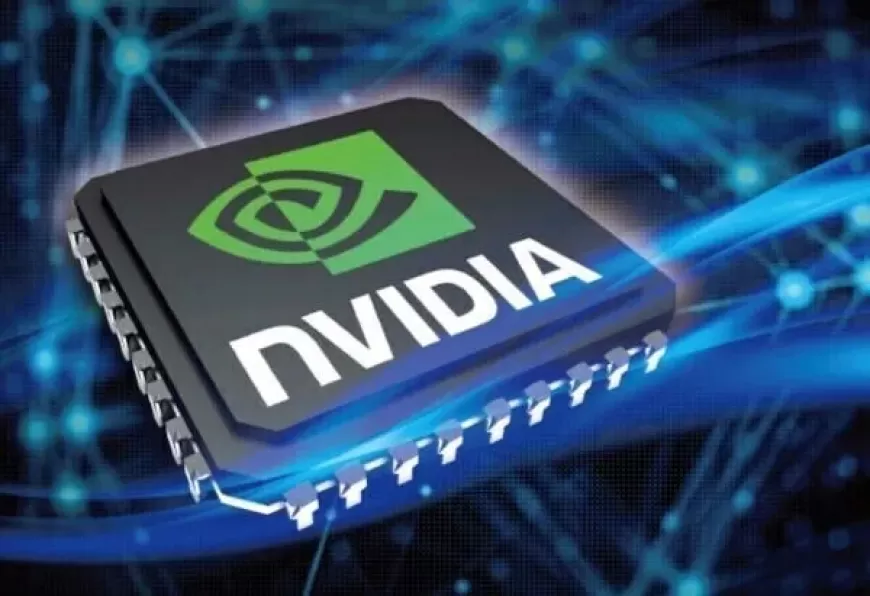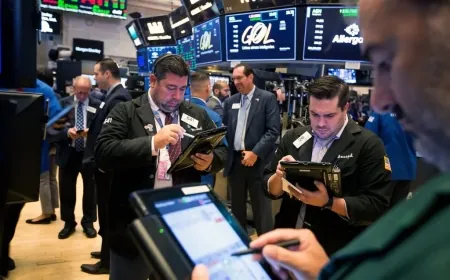Nvidia Stock Drops as Biden Administration Tightens AI Chip Export Rules
Nvidia stock fell by 3% after the Biden administration announced new export regulations limiting the sale of AI chips, like GPUs, to certain countries.

Nvidia's stock (NVDA) fell by up to 3% on Monday after the Biden administration unveiled stricter export rules for artificial intelligence (AI) chips, particularly focusing on sales to countries seen as "adversaries," like China.
The new rules limit the number of advanced GPUs (graphics processing units) that can be sold to most countries without a special license. The cap is set at 50,000 units per order, while smaller shipments of up to 1,700 GPUs are exempt. However, US allies such as the UK, Taiwan, and the Netherlands will not face these restrictions.
The White House explained that these rules are necessary to ensure the US leads the AI technology sector while preventing rivals from easily accessing cutting-edge AI hardware. "The United States must act decisively to lead this transition and prevent adversaries from exploiting advanced AI," the White House stated.
In 2024, companies like Microsoft (MSFT) and Meta (META) were among the biggest buyers of Nvidia’s powerful Hopper GPUs, with Microsoft purchasing 485,000 units and Meta buying 224,000. The updated export rules aim to close gaps in previous regulations that allowed smuggling or non-compliant sales, particularly to China.
DA Davidson analyst Gil Luria highlighted that these rules will make it harder for Chinese companies to acquire Nvidia's advanced chips. He explained, "While restrictions were already in place, there have been reports of Nvidia chips reaching China due to poor control over resellers."
Nvidia, however, points out that it makes modified versions of its chips to comply with current US regulations. For instance, Nvidia’s H20 chips, designed for the Chinese market, will not be affected by the new rules.
In response, Nvidia’s Vice President of Government Affairs, Ned Finkle, criticized the lack of transparency and proper review in the rule-making process. He warned that these restrictions could harm the US technology sector. "This rule threatens to undermine America's technological leadership and innovation," Finkle said.
The new rules will be open for public feedback for 120 days before taking effect in a year, allowing time for potential adjustments under the incoming administration. Nvidia's statement also signaled a preference for policies that encourage innovation and competition. "We look forward to a return to policies that strengthen American leadership in AI," Finkle added.
Despite the regulatory changes, some analysts are still optimistic about Nvidia’s future. Bank of America analyst Vivek Arya reaffirmed his "Buy" rating for the stock, though he noted that the new export restrictions could complicate Nvidia's outlook. Citi analyst Malik Atif also pointed out that the export cap could hurt Nvidia's data center GPU sales, which make up a large portion of its revenue.
Nvidia’s stock continued its decline on Monday, dropping 3%, following a 3% dip on Friday in anticipation of the new regulations. Over the past week, Nvidia’s shares have fallen by about 9%.
Additionally, HSBC lowered its price target for Nvidia from $195 to $185, citing concerns about supply chain issues related to the Blackwell project, which could affect Nvidia’s performance through mid-2026.
The Semiconductor Industry Association (SIA) expressed dissatisfaction with how quickly the new export rule was introduced, without sufficient industry consultation. "This significant policy shift should not be rushed without meaningful input," the SIA stated.
The news also impacted the PHLX Semiconductor Index (^SOX), with Nvidia’s competitors like Advanced Micro Devices (AMD) and Qualcomm (QCOM) experiencing slight drops, while Broadcom (AVGO) saw a small increase.
Also Read: 3 High-Growth Tech Stocks That Could Outperform Cryptocurrencies
































































